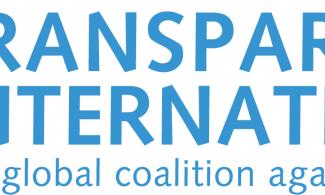
The body noted that this makes governments dependent on banks to report such activities, a situation that impedes investigation into corruption.

Global corruption body, Transparency International, said in a new report on Thursday that police around the world do not have the capacity to track illicit transactions made by carton companies.
The body noted that this makes governments dependent on banks to report such activities, a situation that impedes investigation into corruption.
The report notes that only one of the 83 companies studied are able to properly track criminal financial activities.
“Almost without fail, anonymous Shell companies appear at the centre of major cases of corruption, money laundering, and tax evasion,” said Maira Martini, an anti-money laundering expert at Transparency International and author of the study.
“Funds can be transferred between corporate bank accounts within seconds but identifying who owns companies involved in cross-border corruption cases can take authorities up to a year,” she added.
The organisation suggests that countries should open central registries where beneficial ownership data can be easily sourced and compared globally.
“Transparency International found that in the vast majority of 26 countries analysed in detail, authorities rely on information collected by banks and other reporting entities.
“This impedes investigations as authorities often first need to know where the company banks.
“They may also require a court order, and information held by banks is often unverified.
“Cross-border ownership and banking structures create additional hurdles.
“Central registers make it much easier for authorities to access the information they need in a timely manner.
“When these registers are also public, there are more ways of making sure the information available is accurate, as journalists and civil society can identify inaccuracies and cross-reference with other sources,” Martini observed.
Global anti laundering regulator – Financial Action Tax Force, has made it mandatory for countries to make it easier for people to know the real and beneficial owners of a company.
This requirement is not legally possible in Nigeria, as the eighth assembly failed to assent to the beneficial ownership bill.
Transparency International notes that FATF does not instruct countries on what method to adapt in making spotting beneficial ownership easy.
It however, advised the regulator to revise its recommendations to adopt a multi-pronged approach to beneficial ownership information, with reporting entities.